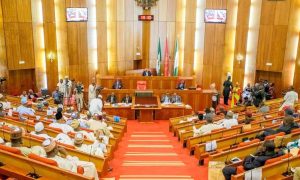When Nigerian president Bola Tinubu launched a steering committee in July to develop ‘digital free zones’ focussed on tech and services-based businesses, he signalled the start of a new era for special economic zones (SEZs) in the country.
Nigeria’s current SEZ framework dates back 32 years and is centred on export-oriented manufacturing activities. However, the national economy is shifting and technology and services-based sectors are becoming its drivers of growth.
The country is well-positioned to become an African, if not global, leader in tech and financial innovation. By adopting a modern, adaptive regulatory model for SEZs dedicated to future-focused industries, Nigeria can transform itself into a living lab where these businesses can thrive.
Innovation Through Regulation
Dozens of jurisdictions around the world have rolled out creative regulatory schemes to attract leading firms and entrepreneurs in tech and services. Dubai became the Middle East’s leading financial hub following the establishment of the Dubai International Financial Centre (DIFC) in 2004.
Estonia has become an entrepôt for the European market via its e-Residency programme, which allows foreign entrepreneurs to establish a business in the EU. And the US state of Delaware is the legal home of millions of businesses and most Fortune 500 companies, thanks to its favourable laws and world-class court system.
Africa is yet to see a comparably ambitious jurisdiction. However, Nigeria’s innovation ecosystem and standing as one of the continent’s biggest economies make it a leading contender. Its fintech sector, for example, makes up around one-third of Africa’s market according to the World Bank. It has produced several unicorns — including Flutterwave, Paystack and Andela — and has a vibrant entrepreneurial spirit centred in Lagos.
Itana’s Infrastructure Example
Today, inadequate soft and hard infrastructure both limit the potential of Nigeria’s tech and digital sectors. However, its digital free zone plans can help address this by streamlining the regulatory framework, offering business incentives and improving operational efficiencies. These digital SEZs can also leverage Nigeria’s ratification of the African Continental Free Trade Area Agreement to become a focal point for pan-African business.
The country already has an aspiring digital SEZ which is leading by example. In 2023, Nigeria’s Itana became Africa’s first licensed digital free zone management company. It is building a digital SEZ based in Lagos which can quickly become the premier destination for established tech and digital companies and promising entrepreneurs.
While regulatory frameworks are crucial for these businesses, they must also be supported by quality physical infrastructure. SEZs with high-speed bandwidth, uninterrupted power supply and other utilities are vital for activities largely taking place online. Many of Nigeria’s talented entrepreneurs and professionals choose to leave for places better equipped to support their work.
Itana is working to attract and retain the best talent through the development of an eco-friendly, mixed-use tech campus in the Lekki free zone in Lagos, which includes its live-in Accelerate Africa programme backed by Andela founder Iyin Aboyeji. Notably, being physically present in the campus is an option for tenants. They can operate from anywhere in the world, so long as they have a virtual address tied to the digital zone.
Collaboration Is Key
Developing a competitive digital SEZ framework is a clear priority for Nigeria’s government. Its steering committee is chaired by the president himself, and its members include senior ministers and private sector voices — grouped under the Initiative for the Promotion of Digital Free Zones in Nigeria — including Africa Finance Corporation (AFC), Future Africa, PwC Nigeria, Charter Cities Institute and Itana. AFC is also leading the financing for Itana’s $100m phase-one development.
For all their promise, Nigeria’s rollout of digital SEZs faces hurdles to success. Frameworks like the DIFC, Estonian e-Residency and Delaware corporate law were developed in countries with much higher income levels and more robust legal institutions. Despite Nigeria’s pan-African ambitions, economic integration across the continent remains slow and much of Africa’s best talent is still educated — and often remains — overseas.
However, Nigeria is a strong contender to join the group of countries that have found creative ways to attract and retain digital tech, financial and services-based companies and talent. Digital SEZs’ success could create thousands of good jobs and facilitate innovation and economic transformation, while failure risks permanent secondary status in the global economy.
A digital SEZ framework that attracts global investment, talent and innovation can propel Nigeria to new economic heights as Africa’s ideal jurisdiction to do business, innovate and build the future.
fDi



























